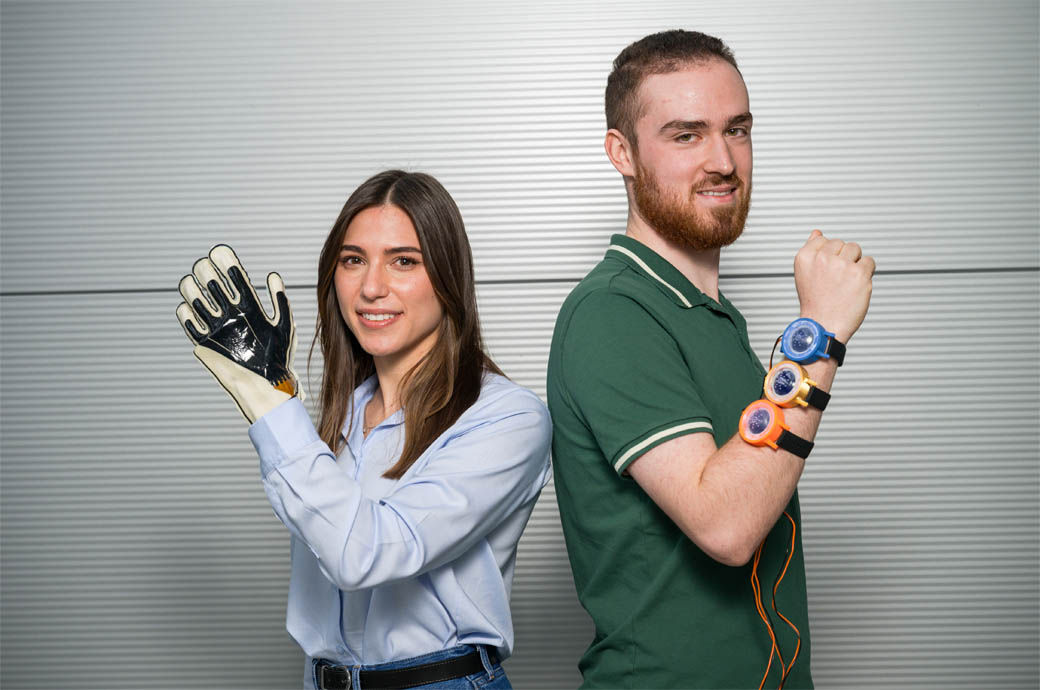
The ‘Multi-Immerse’ project can enable ill children in isolation wards in hospitals feel the closeness of their parents' bodies even during computer-simulated visits, i.e., they can still see, hear and feel the intense closeness despite the spatial separation.
The Saarland University of Applied Sciences, the Center for Mechatronics and Automation Technology (ZeMA) and the German Research Center for Artificial Intelligence (DFKI) are working on the technology, which was presented at the Hannover Messe recently.
Surfaces are given new abilities using light silicone films. Engineers then turn the 50-micrometres thick films into a second skin, which acts as an interface to the virtual world. This is intended to create a new body perception in fictional reality, a release from the Saarland University said.
Integrated into a textile, the films are intended to transfer the touch to the child's skin that occurs when mother or father strokes a second smart textile somewhere else.
“We use the films, so-called dielectric elastomers, as sensors to record the touch movements and at the same time as actuators, i.e. drives, to pass on these movements,” explained Stefan Seelecke, professor of intelligent material systems.
As a sensor, the film detects how exactly hands and fingers press, dent and stretch the film when you move it over it. The film imitates exactly this deformation, which is caused by the touching movements, in a second textile on the child's skin in order to give the impression of being stroked over the child's arm, the release said.
“The top and bottom of the film are printed with a conductive, highly stretchable electrode layer. When we apply an electrical voltage to this, the electrodes attract each other due to the electrostatic attraction and compress the film, which moves to the side and increases its area," said Paul Motzki, who holds the bridge professorship ‘Smart Material Systems for Innovative Production’ between Saarland University and ZeMA.
With every slight movement, the electrical capacity of the film changes: a physical quantity that can be measured. So if a finger strokes the film, it deforms it and an exact measurement of the electrical capacity can be assigned to each individual position: a specific number describes a very specific position of the film.
A sequence of these individual measured values sets a sequence of movements in motion. The film is, therefore, its own stretchable sensor that detects how it is being deformed.
At the Hannover Messe, the team demonstrated its technology with a watch that has a smart film on the back.
The process is cheap, easy, noiseless and energy efficient. Film technology can also make gaming experience more intense in computer games through realistic body perception.
In other projects, the engineers use their films to line work gloves for Industry 4.0 or create the impression of button edges so that buttons or sliders become noticeable out of nowhere, thereby making user interfaces more user-friendly.
Fibre2Fashion News Desk (DS)

